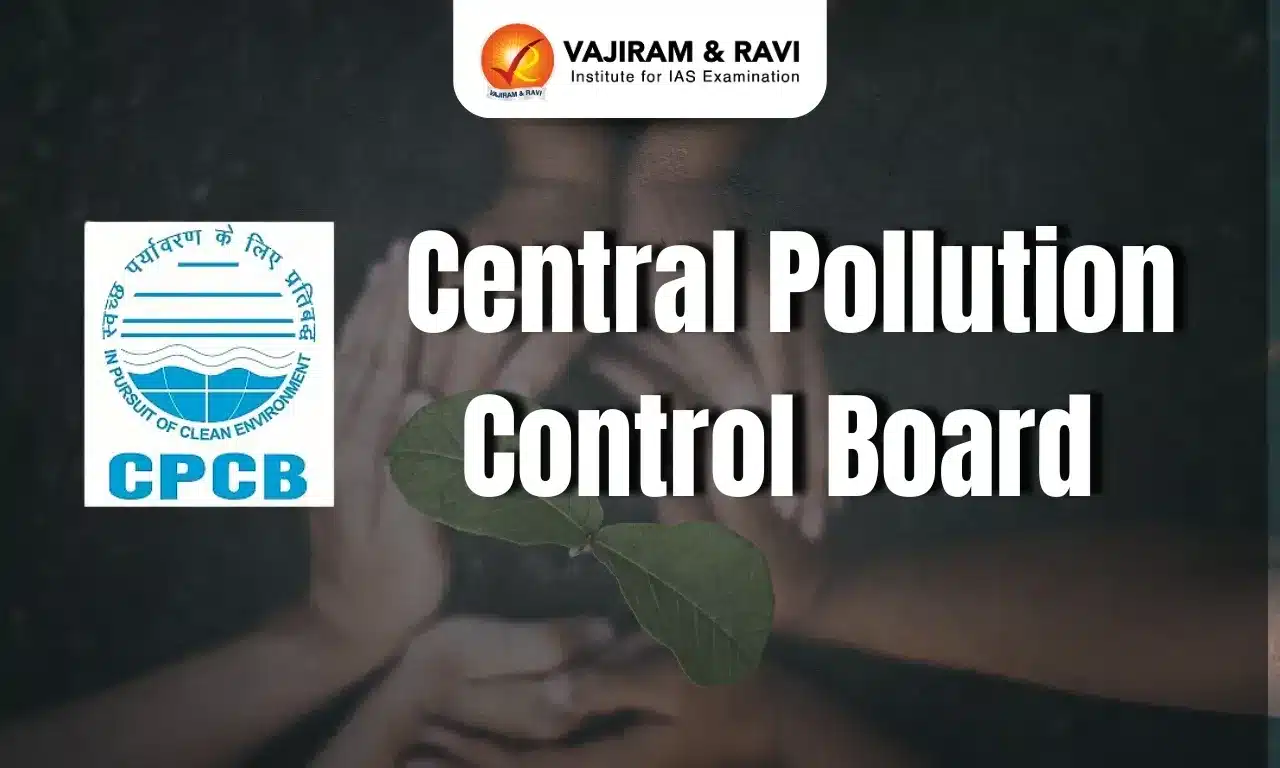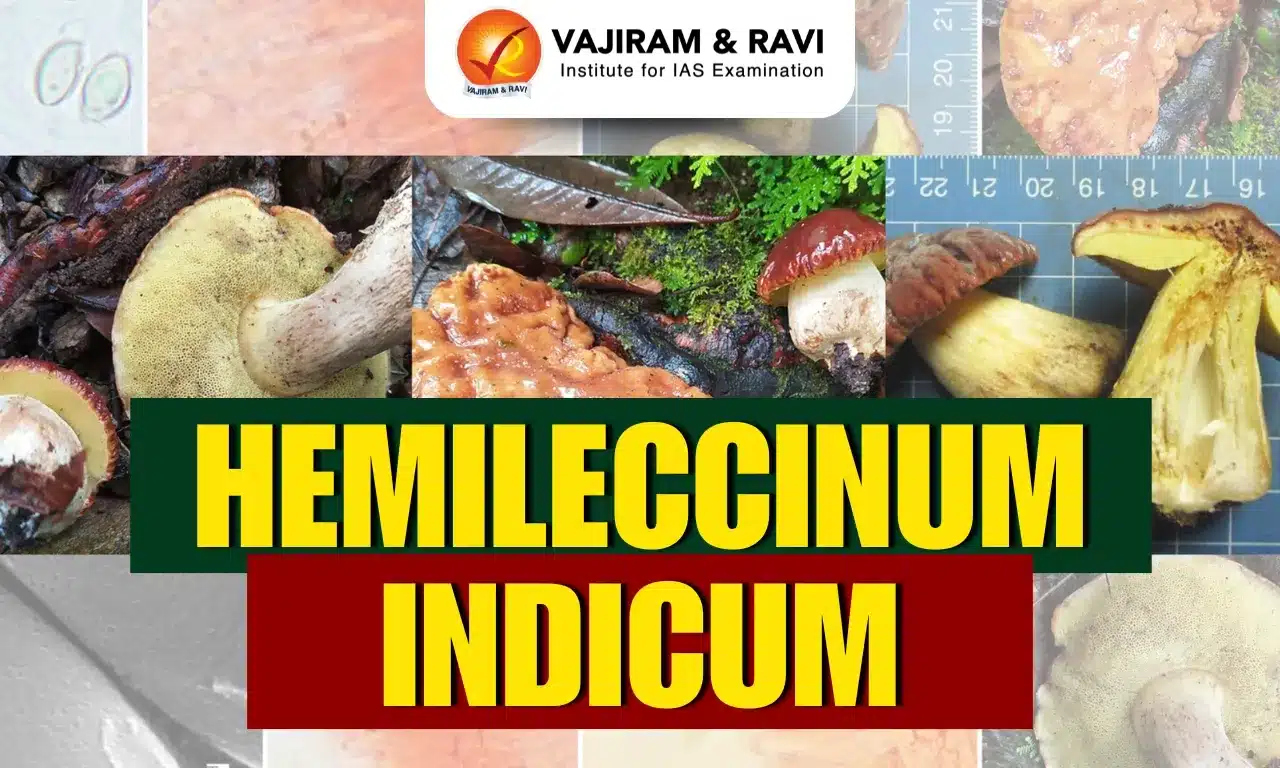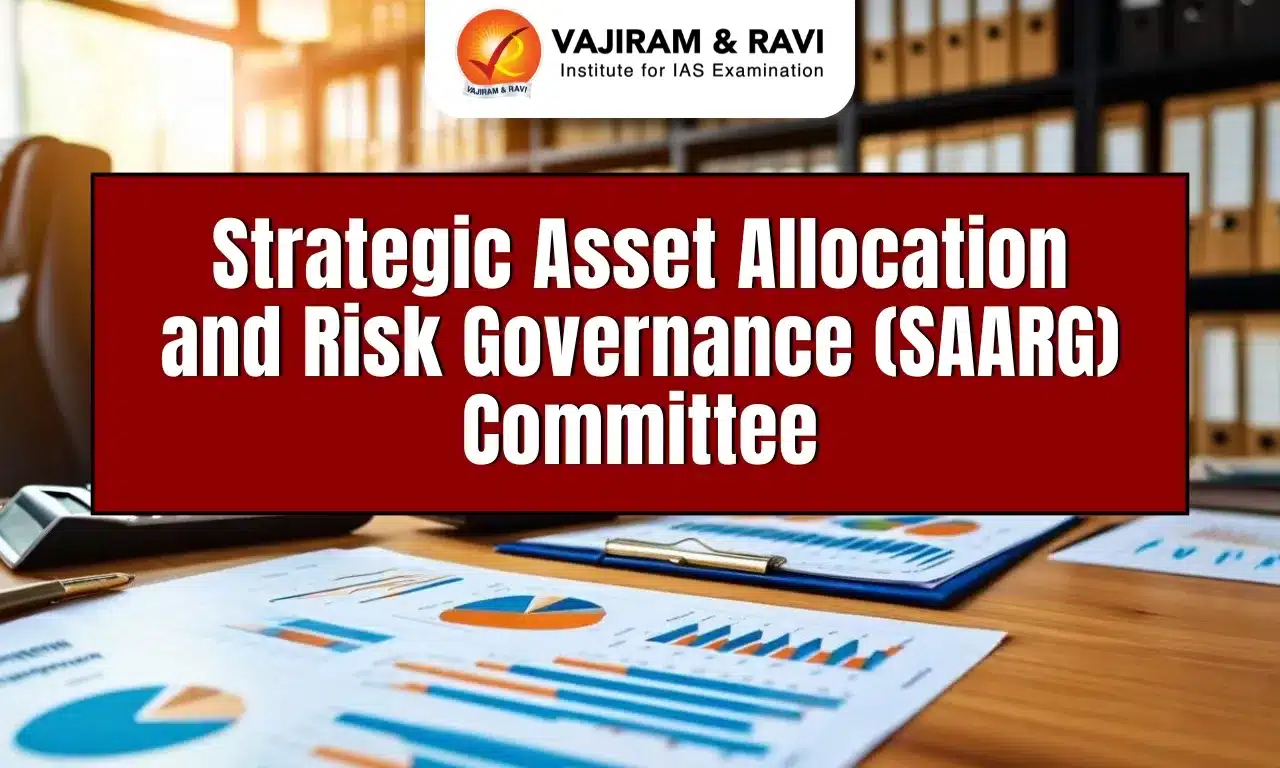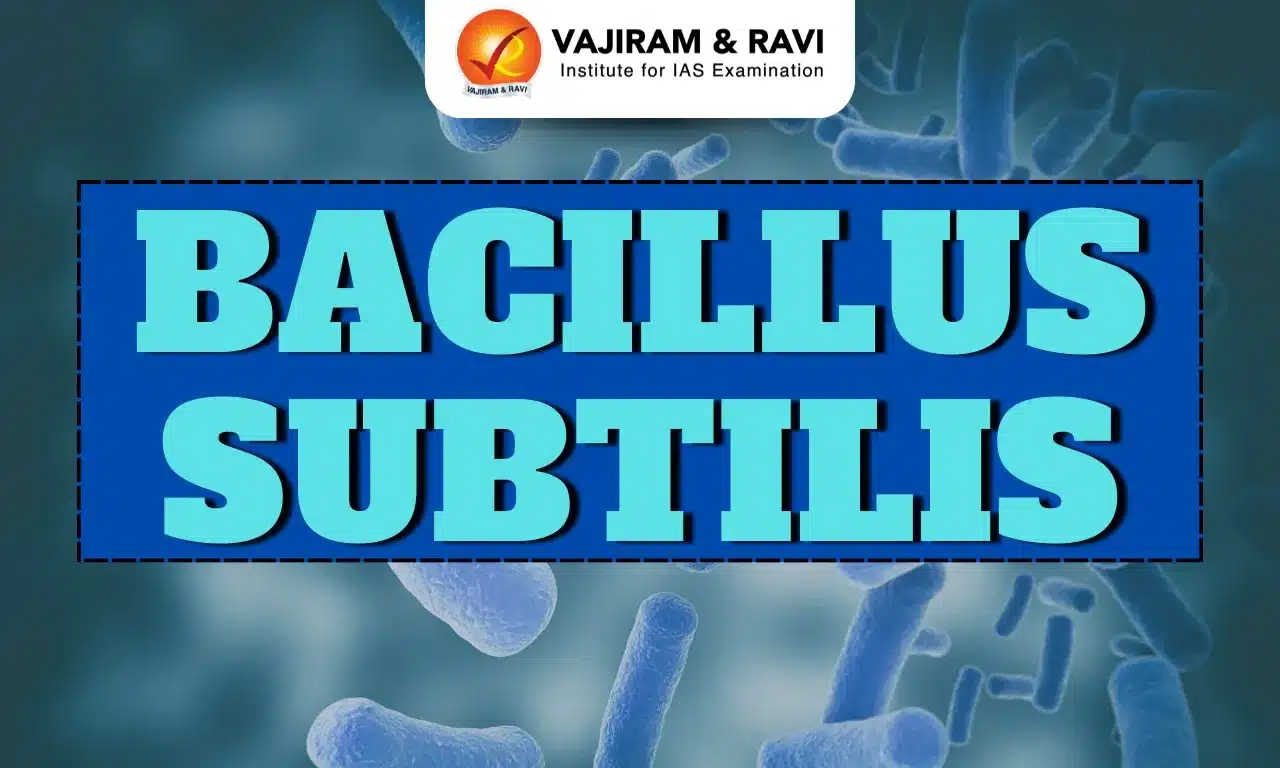Central Pollution Control Board Latest News
The Central Pollution Control Board (CPCB) recently filed a report before the National Green Tribunal’s Principal Bench revealing concerning findings regarding the river water quality at Prayagraj (UP) during the ongoing Maha Kumbh Mela.
About Central Pollution Control Board, Powers, Functions
- It is a statutory organisation constituted in September, 1974, under the Water (Prevention and Control of Pollution) Act, 1974.
- Further, CPCB was entrusted with the powers and functions under the Air (Prevention and Control of Pollution) Act, 1981.
- It serves as a field formation and also provides technical services to the Ministry of Environment and Forests of the provisions of the Environment (Protection) Act, 1986.
- Principal Functions of the CPCB:
- To promote cleanliness of streams and wells in different areas of the States by prevention, control, and abatement of water pollution.
- To improve the quality of air and to prevent, control or abate air pollution in the country.
- It advises the Central Government on matters related to control and abatement of air and water pollution.
- It also coordinates the affairs of other State Pollution Control Boards, assists them, furnishes guidance, and helps in conflict resolution in case of any disagreement among them.
- CPCB has delegated its powers and functions under the Water (Prevention & Control of Pollution) Act, 1974, the Water (Prevention & Control of Pollution) Cess Act, 1977, and the Air (Prevention & Control of Pollution) Act, 1981, to the respective regional administration with respect to Union Territories.
- Standard development activities of CPCB:
- CPCB takes up the development/revision of Environmental Standards, the upgradation of Comprehensive Industrial Document (COINDS), and guidelines for environmental management in various industrial sectors.
- In consultation with the state government concerned, CPCB laid down the standard for stream or well or quality of air and also prepared manuals, codes, and guidance relating to the treatment and disposal of sewage and trade effluents, as well as for stacks gas cleaning devices, stacks, and ducts;
- CPCB develops Standards for:
- National ambient air quality
- Water Quality Criteria from different sources
- Standards for Emission or Discharge of Environmental Pollutants from various Industries (Issued under Environment Protection Rules, 1986)
- Standards for Treatment and Disposal of Bio-Medical Waste by Incineration
- Emission standard, Noise limits for Diesel Engines
- Emission and Noise Limit of LPG and CNG Generator Sets
- CPCB also formulates the Minimal National Standards (MINAS) specific for various categories of industries with regards to their effluent discharge (water pollutants), emissions (air pollutants), noise levels, and solid waste.
- These standards are required to be adopted by State Governments as minimal standards.
Central Pollution Control Board FAQs
Q1. Where is Central Pollution Control Board situated?
Ans. CPCB has its head office in New Delhi.
Q2. Is CPCB a statutory body?
Ans. Yes, the Central Pollution Control Board (CPCB) is a statutory body.
Q3. Central Pollution Control Board (CPCB) functions under which ministry?
Ans. Ministry of Environment, Forest and Climate Change
Source: LL
Last updated on January, 2026
→ Check out the latest UPSC Syllabus 2026 here.
→ Join Vajiram & Ravi’s Interview Guidance Programme for expert help to crack your final UPSC stage.
→ UPSC Mains Result 2025 is now out.
→ UPSC Notification 2026 Postponed for CSE & IFS which was scheduled to be released on 14 January 2026.
→ UPSC Calendar 2026 has been released.
→ UPSC Prelims 2026 will be conducted on 24th May, 2026 & UPSC Mains 2026 will be conducted on 21st August 2026.
→ The UPSC Selection Process is of 3 stages-Prelims, Mains and Interview.
→ Prepare effectively with Vajiram & Ravi’s UPSC Prelims Test Series 2026 featuring full-length mock tests, detailed solutions, and performance analysis.
→ Enroll in Vajiram & Ravi’s UPSC Mains Test Series 2026 for structured answer writing practice, expert evaluation, and exam-oriented feedback.
→ Join Vajiram & Ravi’s Best UPSC Mentorship Program for personalized guidance, strategy planning, and one-to-one support from experienced mentors.
→ UPSC Result 2024 is released with latest UPSC Marksheet 2024. Check Now!
→ UPSC Toppers List 2024 is released now. Shakti Dubey is UPSC AIR 1 2024 Topper.
→ Also check Best UPSC Coaching in India

















